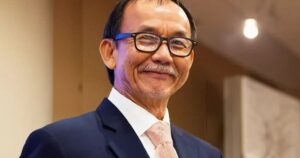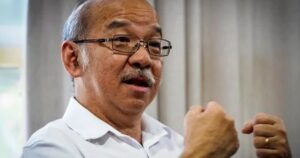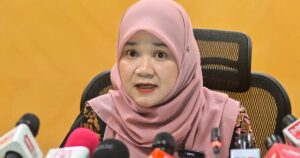
A former minister has proposed that Malaysia seek compensation from Singapore for the full cost of subsidies spent on educating and training doctors and nurses who later take up employment in the island state.
Abdul Rahman Dahlan said there was a need to shift the focus from trying to prevent the medical professionals from moving to Singapore, since it is their right to do so, to finding ways to recover the high costs spent on their training.
“That money can be utilised to improve healthcare services for Malaysians, particularly in underserved areas. That is the only fair thing to do,” he said in a Facebook post.
Rahman suggested that, alternatively, Putrajaya could impose an additional levy, calculated monthly or annually, based on the contracts and income of Malaysian doctors and nurses working in Singapore, with verification provided by the Malaysian High Commission there.
Rahman, who was previously minister in the Prime Minister’s Department in charge of the Economic Planning Unit, stressed that the proposed compensation should be borne by the employers in Singapore instead of the Malaysian employees.
“With strict enforcement on compliance, this then levels the field for a more equitable ‘willing buyer willing seller’ scenario.
“This shouldn’t be seen as a punishment on those who seek employment outside the country, but rather as a compensatory mechanism after having been trained locally at the expense of taxpayers,” he added.
Rahman said this approach was a win-win solution for all involved.
“Hospitals in Singapore get the doctors and nurses they need, while the Malaysian government recovers the huge subsidies it spent on these doctors and nurses and reinvests that money in the provision of healthcare services.”
He acknowledged that there would be plenty of technical and legal issues that must be addressed before such a policy could be implemented.
More studies, Rahman said, could and should be done to fine-tune the mechanism.
He said his remarks centred on Singapore because of its geographical closeness, despite European and Middle Eastern nations also hiring Malaysian medical professionals.
In July, Senator Dr RA Lingeshwaran raised concerns over Singapore’s bold move to hold direct interviews at a leading hotel in Kuala Lumpur for the recruitment of experienced doctors.
In response, health minister Dzulkefly Ahmad said Malaysia remained committed to retaining doctors and healthcare workers although it had no legal power to stop them working abroad.
He also said the ministry was taking steps to encourage doctors to remain in the system, including accelerating the appointment of contract doctors to permanent positions in light of the country’s critical need for medical professionals.






